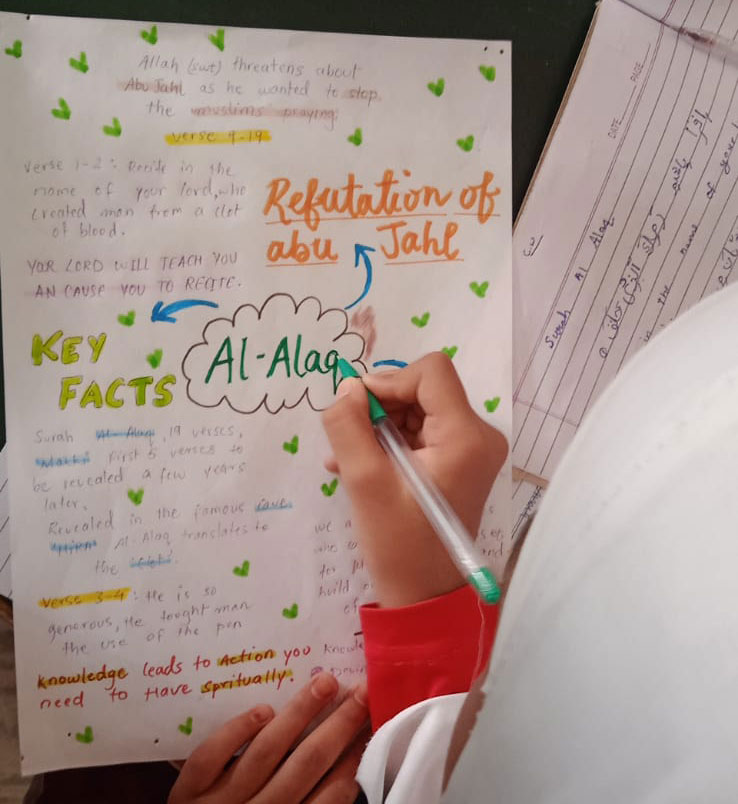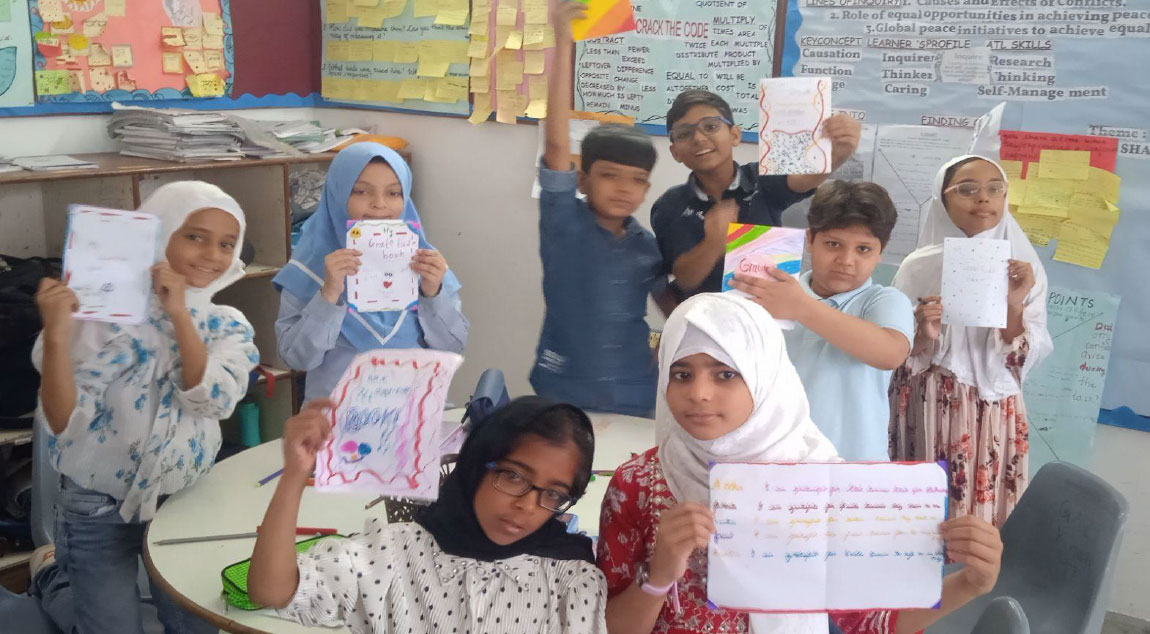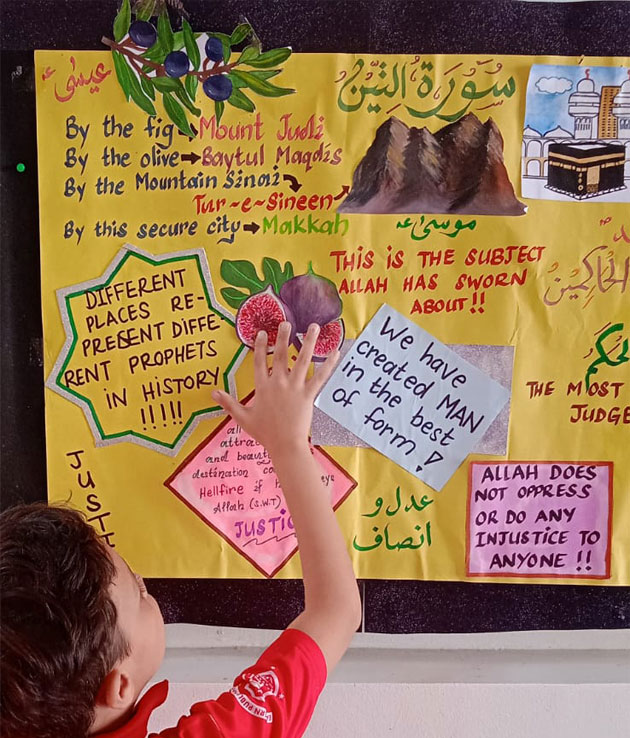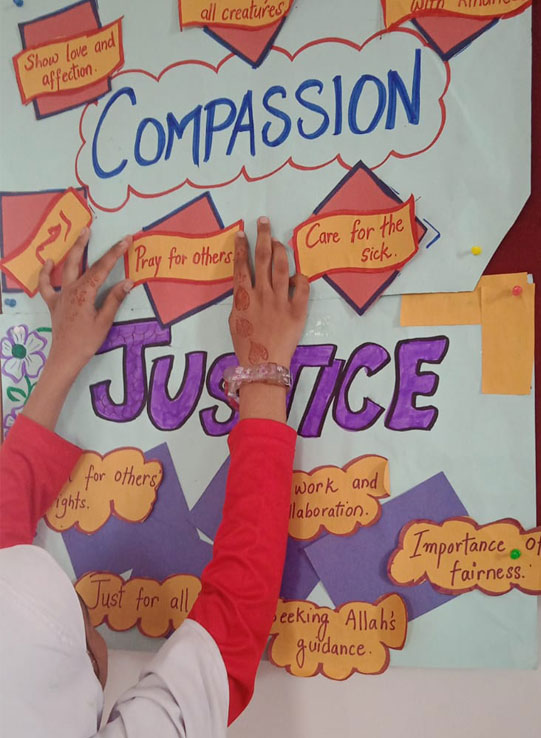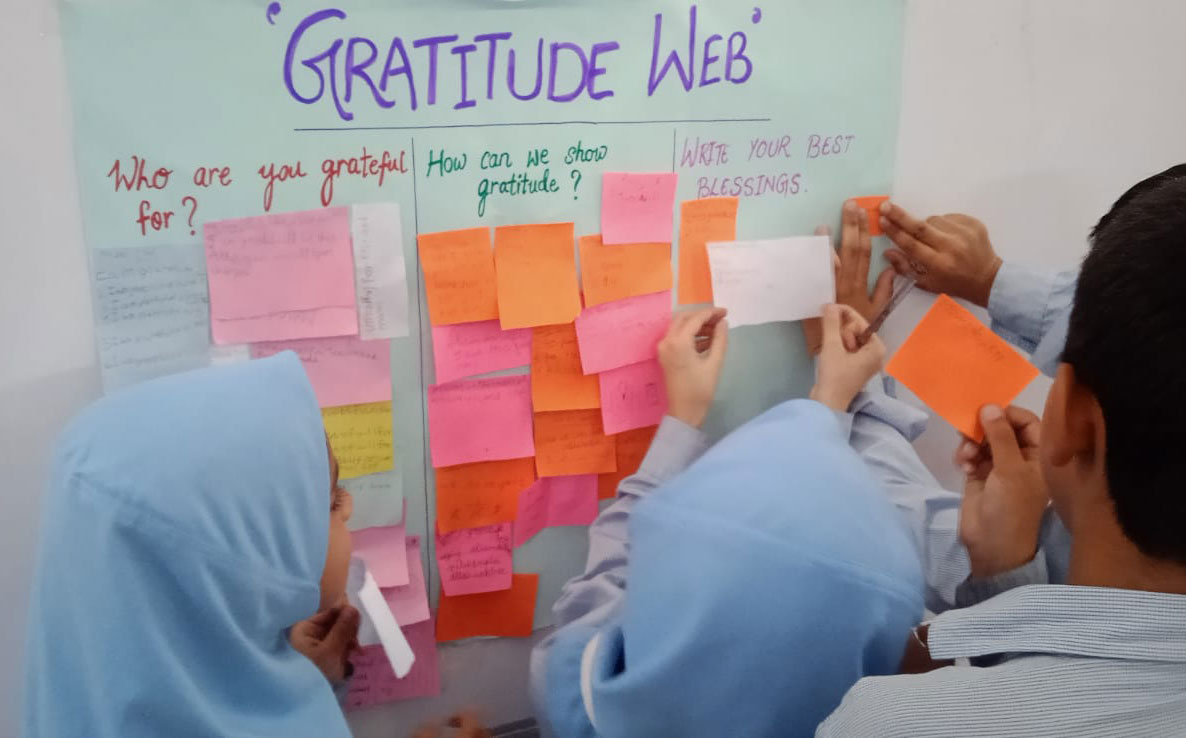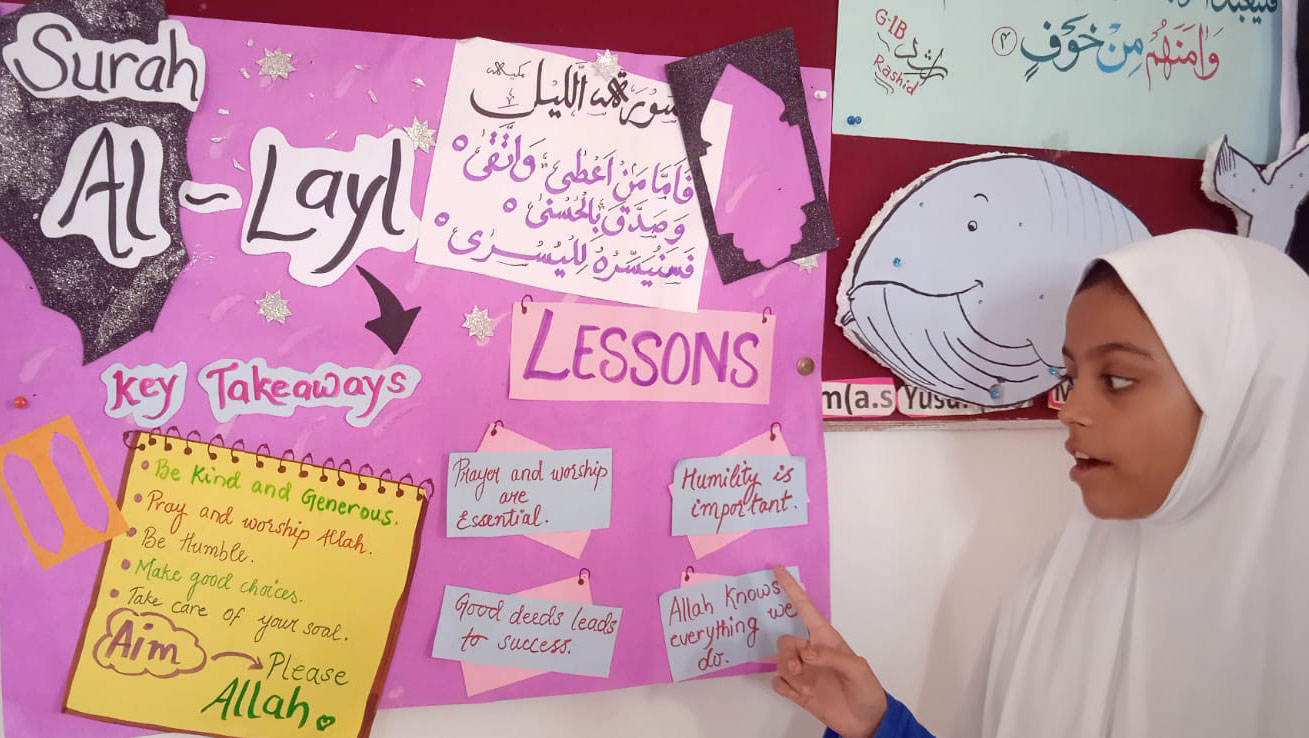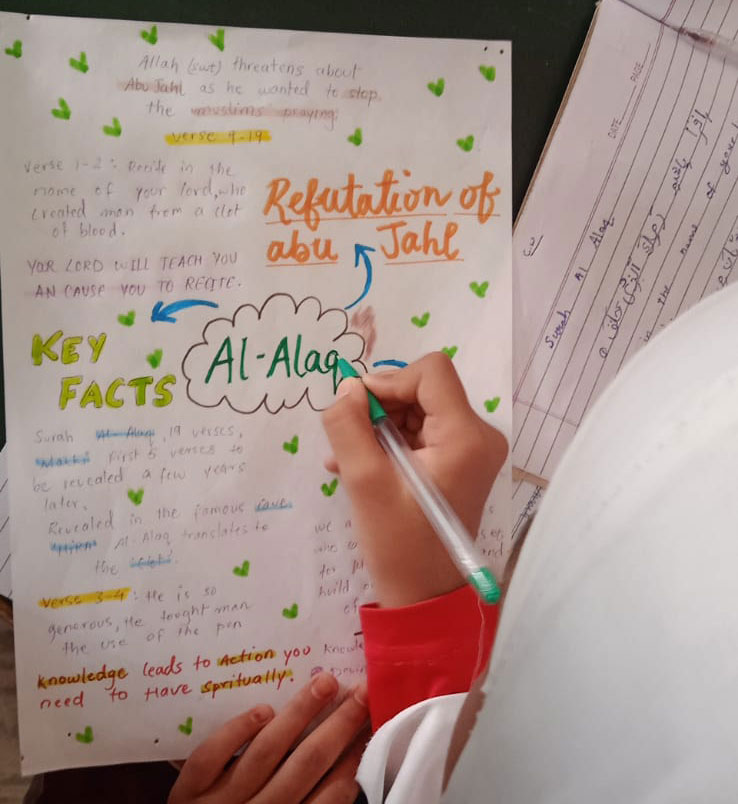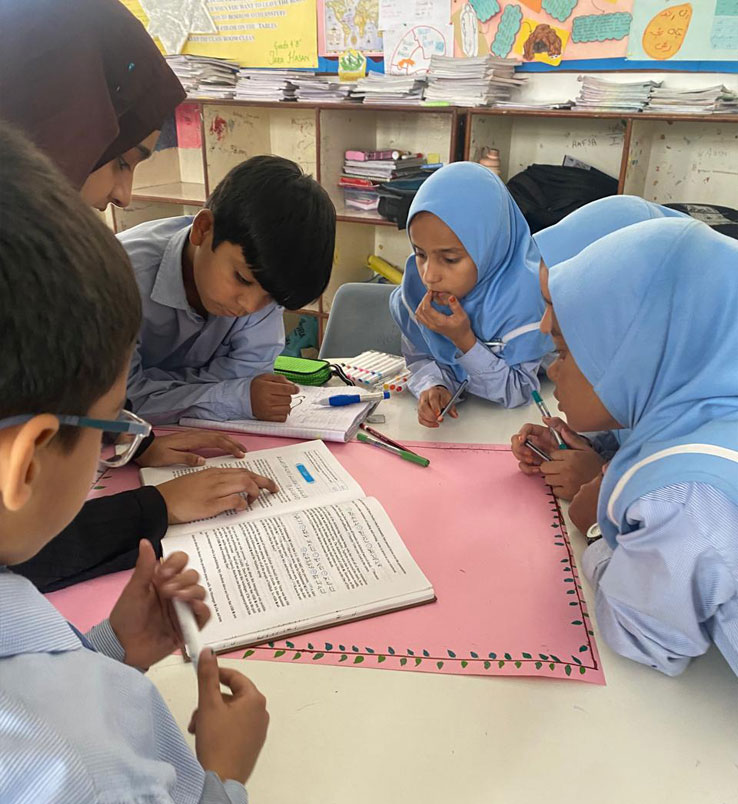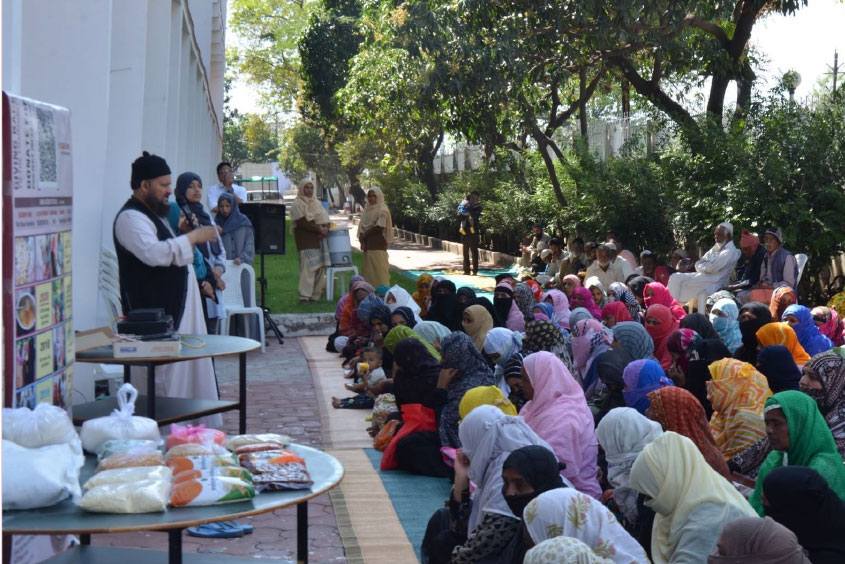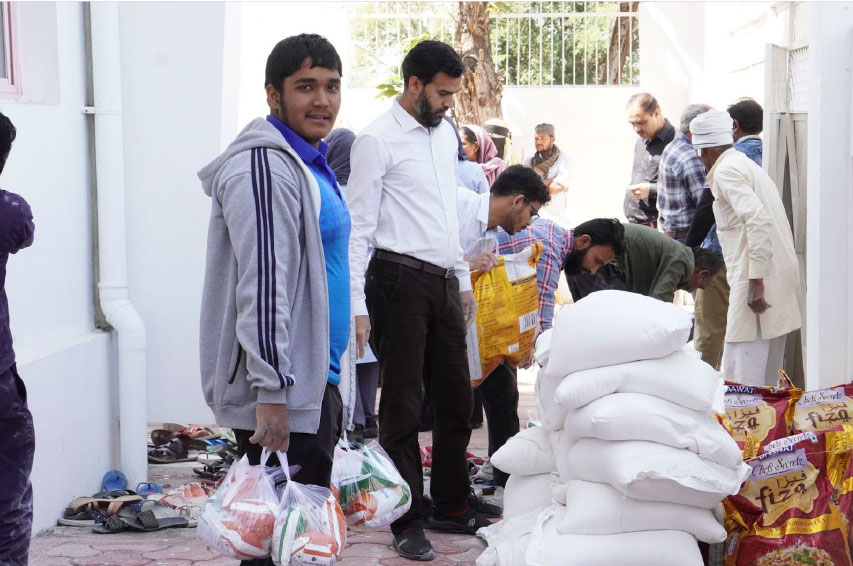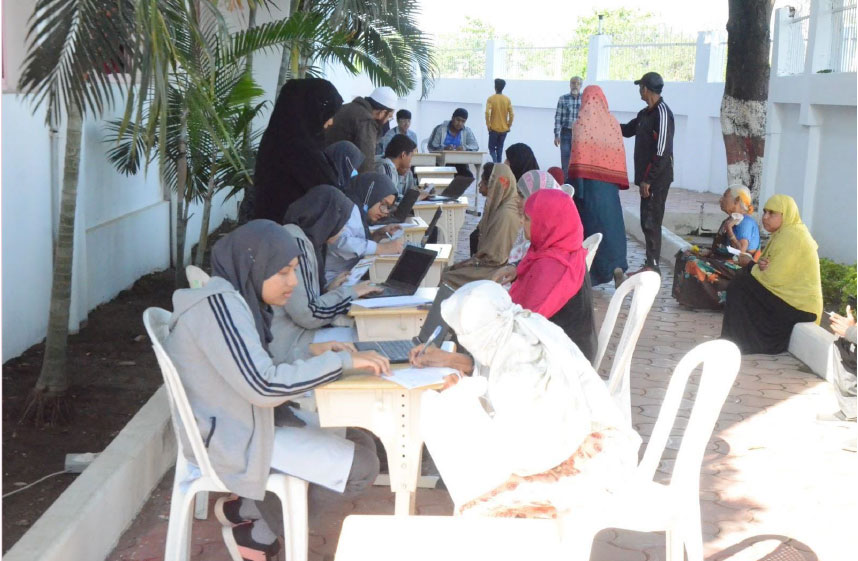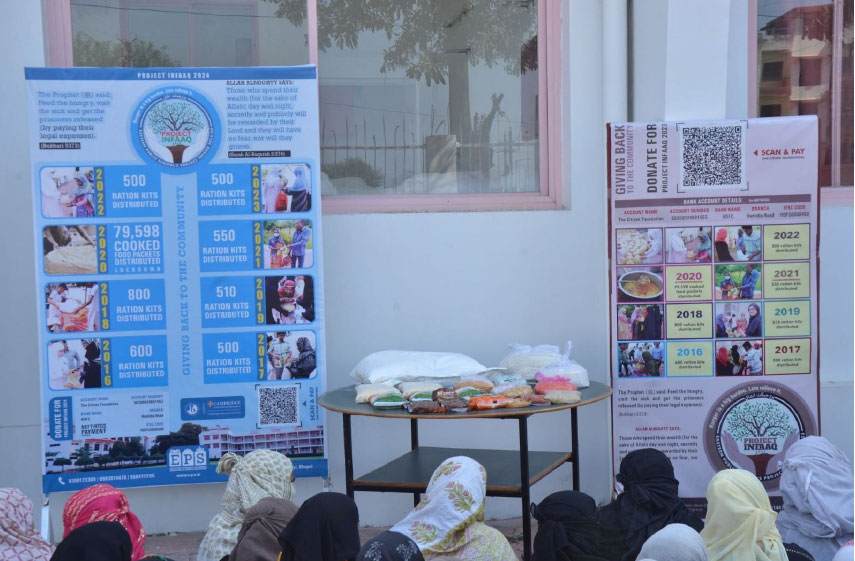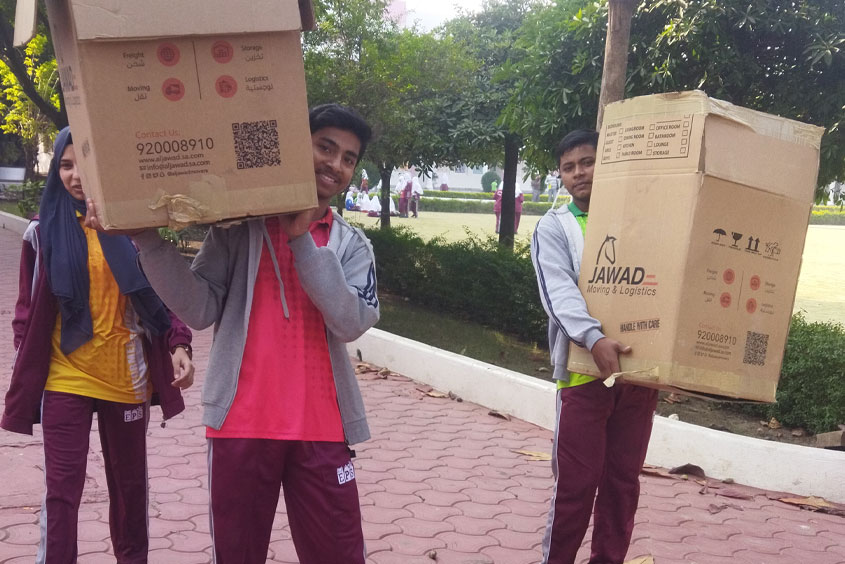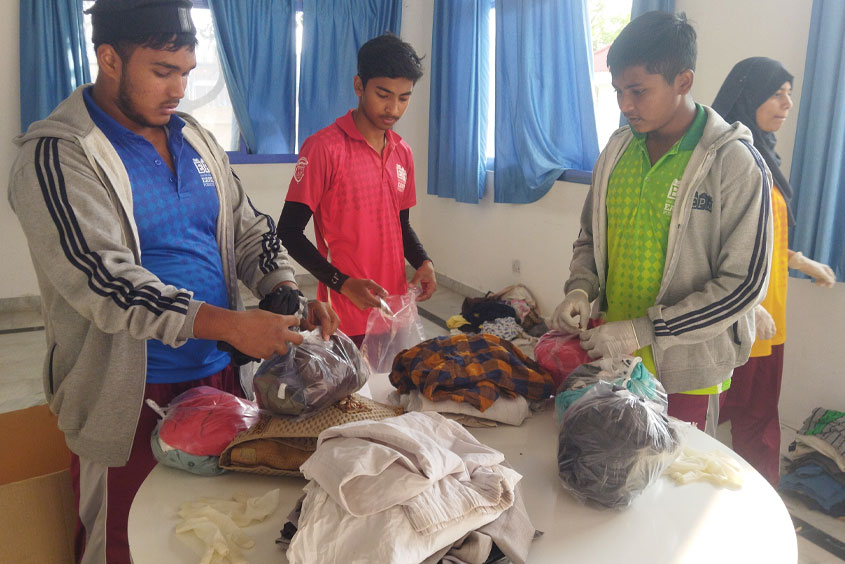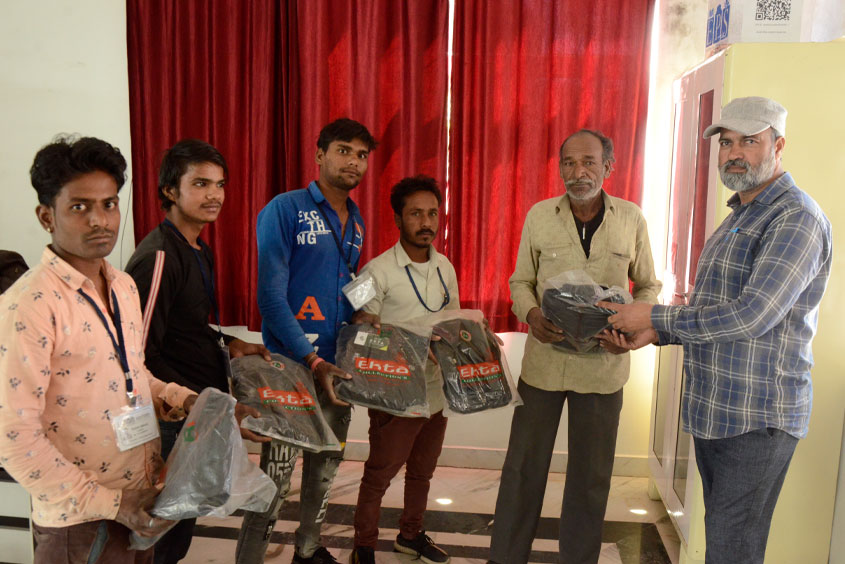ISP Mission Statement
To develop pedagogical material and nurture Human Resources for teaching, developing and reinforcing the middle “E” of EPS across all stakeholders for the benefit of common humanity & shared guardianship of the planet.
Islamic Studies Program at EPS is thoughtfully integrated with the International Baccalaureate (IB) philosophy and pedagogy. This unique initiative helps students deepen their conceptual understanding of Islamic faith in an age-appropriate manner, ultimately guiding them to become ethical humans.
How is the EPS Islamic Studies Program different from other Islamic Schools?
The concept of Learner Profiles in IB pedagogy makes it the world’s best schooling program. All teaching and learning in IB is aimed at developing one or the other IB Learner Profiles – which are listed on PYP and DP pages. In line with this philosophy, EPS is the only school on the planet which has developed in-house Islamic Learner Profiles. Through this methodology, we aim to achieve the same results for the middle “E” of EPS the way IB Learner Profiles help us achieve our goals towards the first “E” of EPS.
Key Components
- Spiritual X-Ray Machines for Tarbiyah: These are the tools developed in-house by our Research & Development team for identifying areas of spiritual growth and are used to assess the personal development of our students, staff, and parents.
- X-Ray Assessments: A detailed questionnaire (for Ehtesab) is designed for each Islamic Learner Profile to deeply understand and identify spiritual weaknesses such as dishonesty, arrogance, ungratefulness etc. among all stakeholders.
- Islamic Learner Profiles: Profiles that shape our characters to become better humans.
- Inquiry-Based Learning: In line with the Quranic methodology of teaching and learning, we emphasize inquiry through Tadabbur (reflection) and Tafakkur (contemplation).
- Differentiated Learning: Differentiated learning (or differentiated instruction) is a teaching approach that tailors instruction to meet the diverse needs, interests, and abilities of students. The goal is to ensure that all students have access to the curriculum and can make progress toward learning objectives. Islamic Studies Team uses differentiated learning and adjusts their teaching strategies, content, and assessment methods to accommodate the varied learning styles and levels of understanding within their classrooms such as:
- Prior Knowledge
- Catering to the different needs of students
- Grouping of students
- Creating different learning opportunities
- Personal Learning Goals
- Counseling and Mentoring: One-to-one & group counseling and mentoring of students, parents and staff based on their X-ray reports to nurture personal growth.
- Comprehensive Assessments: We apply IB-style evaluation techniques for assessing both academic knowledge and ethical behavior as explained below in detail.
- Exhibition: Showcasing students’ understanding and application of Islamic Learner Profiles in their daily lives.
- Development of Planners: Islamic Studies Curriculum planners are aligned with the IB framework.
At the heart of our program is the concept of “spiritual X-ray machines.” Just as medical X-rays diagnose physical ailments, these tools identify spiritual weaknesses by instituting a detailed questionnaire. Based on their findings, we customize our approach and then work closely with students, staff and parents to nurture strong, ethical, and spiritually sound personalities.
Developed over the course of two years through painstaking and diligent efforts, this X-Ray machine develops self-awareness in an individual. Based on the results of the X-ray report, the questionnaires are further refined at the end of each academic session to improve our teaching and learning strategies.
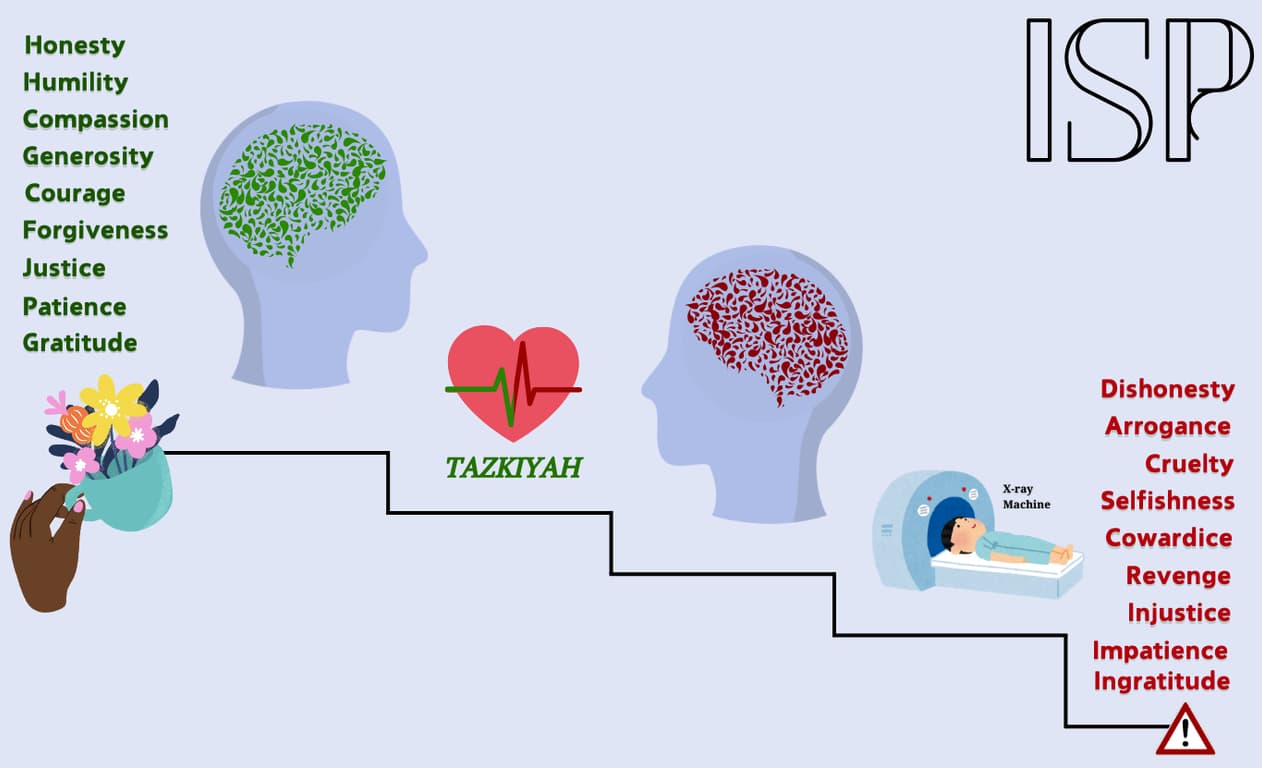
What Does the Islamic Studies Program Consist Of?
- HONESTY – Do we practice HONESTY even when it harms us?
- HUMILITY – Are we HUMBLE to accept all our mistakes in general and with the poor and weak in particular?
- PATIENCE – Do we practice PATIENCE in lighter situations only and lose it in harder ones?
- GENEROSITY – Is our GENEROSITY conditional or unconditional?
- COURAGE – Are we always COURAGEOUS to stand with the truth?
- FORGIVENESS – Do we always practice FORGIVENESS the way we always expect Allah to FORGIVE us?
- GRATITUDE – Is our GRATITUDE only lip service or always reflected in our actions?
- JUSTICE – Do we practice JUSTICE even if it is against us and our loved ones?
- COMPASSION – Despite personal constraints and challenges, do we go out of the way to help others?
Balanced Approach
We emphasize a balanced framework that integrates Haqooq-ul-Allah (rights of the Creator) and Haqooq-ul-Ibad (rights of His creation). This approach ensures that we meet our social and ethical obligations, fostering both academic growth and moral excellence.
Our curriculum nurtures students to be aware of their relationship with Allah while understanding and respecting their responsibilities towards fellow humans. By integrating these core values, we aim to cultivate well-rounded individuals who live their faith authentically and contribute positively to their communities.
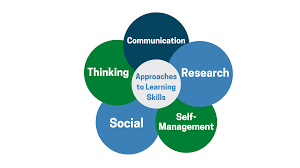
ATL Skills (Approaches to Learning)
Our Islamic Studies program develops essential skills for lifelong learning, including reflection, inquiry, critical thinking, and the ability to apply Islamic teachings on a daily basis. These skills allow students, parents and staff to develop Islamic Learner Profiles to shape their Islamic character.
Our Islamic Studies curriculum is meticulously designed to cultivate a deep, authentic, and accurate understanding of Islam. Through thought-provoking inquiries and guided learning, we aim to address fundamental questions that nurture both belief and reasoning such as:
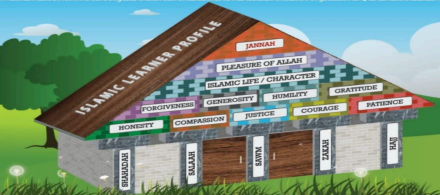
- Who is Allah, and how can we truly know Him?
- How do we understand that Muhammad (SAW) is the true and final messenger of Allah?
- What is the evidence that the Quran is divine guidance from Allah and not a fiction or authored by Muhammad (SAW)?
- Why is the Day of Judgment a logical and absolute necessity for humanity?
- What roles do angels play, and how does their existence align with the broader divine framework?
By encouraging students to explore these pivotal questions, we aim to foster a strong foundation of Islamic knowledge and spirituality through critical thinking empowering them to grow as confident, principled, and reflective individuals rooted in Islamic faith.
Based on teaching and learning methodology of Quran through the above-mentioned approach, we attempt to scaffold our character by clarifying the following key concepts:
- Iman– is the centerpiece of a Muslim’s spiritual life and must be accompanied by actions fully reflecting that belief. In the Quran, Iman is frequently paired with good deeds.
- Ibadah – Total submission/surrender to Allah in every aspect of life in accordance with the Qur’an and Sunnah.
- Akhlaq – Akhlaq refers to moral character or ethical behavior in Islam. It encompasses the qualities, manners, and attitudes that a person should imbibe in order to live an ethical, righteous, and virtuous life as reflected in Islamic Learner Profiles.
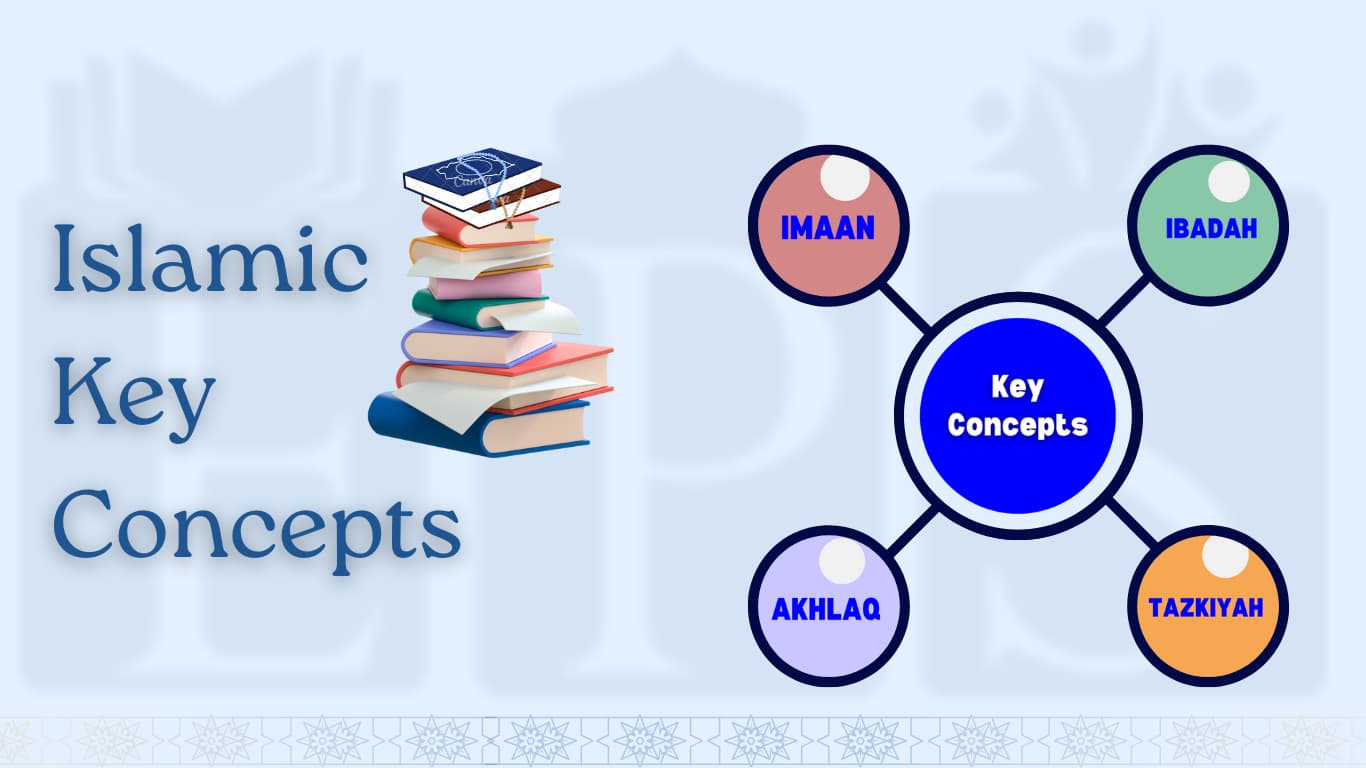
- Tazkiya – It is the ultimate goal of Iman, Ibadah and developing Akhlaq. It is the process of purifying the heart, soul, and actions from negative traits like arrogance, greed, anger, and jealousy, and replacing them with good qualities such as honesty, humility, patience, and compassion. Tazkiya aims to strengthen a person’s relationship with Allah & His creations and cultivate an Islamic character by continuously practicing Islamic Learner Profiles.
Engaging and Interactive Learning
Students are encouraged to internalise the Pillars of Islam and the Islamic Learner Profiles through engaging lessons, real-life examples, and interactive activities. Students practice these values within the school and extend them into the wider community. Our teaching methodology prioritises mentoring and counselling, providing personalized guidance to support each student’s personal growth and well-being. This ensures that ethical behaviour and spiritual growth are an integral part of their educational journey.
Subjects Offered at EPS-ISP:
- Hifz of 30th Juz (Amma):
-
- Focus: Memorization of the 30th Juz of the Quran.
- Purpose: To deeply understand the central idea of Islamic Faith i.e. accountability of our small and big actions on the Day of Judgement.
- Tafseer:
-
- Focus: In-depth study of the teachings of the memorized Surahs.
- Purpose: The concepts of Tawheed, Risalat and Akhirat are repeatedly emphasized to strengthen Iman in our students. Students engage with Surahs of Juz Amma to clarify the central idea of our deen i.e.
- Islamic Studies:
-
- Focus: The curriculum is developed to strengthen the basic knowledge of the Creator and His creations, Ibadah, Islamic manners, and Islamic history.
- Purpose: To strengthen the foundation of our Deen and build the character through the integration of Islamic Learner Profiles.
Conceptual understanding of these teachings enables our students to reflect on and inculcate Islamic Learner Profiles such as gratitude, compassion, patience, and honesty in their daily lives.
Assessments
We implement rigorous IB-style evaluation techniques for assessing both academic knowledge and ethical behavior to ensure a comprehensive understanding and application of Islamic teachings:
- Quranic Recitation and Memorization Assessments: Ongoing evaluations of prescribed chapters.
- Formative Assessment: Provides us the information that is used in order to plan the next stage in learning. It is interwoven with learning, and helps teachers and students to find out what the students already know and can do. Formative assessment and teaching are directly linked and function together to achieve our learning goals. For example, Formative assessment is like adjusting the taste of soup while cooking (ongoing checks and improvements).
- Summative Assessments: aim to give teachers and students a clear insight into students’ understanding of their learnings, and demonstrate their skills, and achievements at the end of a learning period. For example, Summative assessment is like serving the final dish (the completed evaluation of students’ work).
- Behavioral Assessments: Focused on character development, ethical behavior, and adherence to Islamic profiles, utilizing the self-analysis X-Ray tool – Survey Questionnaire.
- Differentiation in Assessments: Differentiation in our Islamic Studies Program involves tailoring assessment methods and approaches to meet the diverse learning needs, abilities, and interests of students while adhering to IB standards. Here are strategies for implementing differentiation in assessments:
- Self Assessment
- Feedback & Feedforward
- Differentiated Assessments
By maintaining high standards of evaluation, we aim to cultivate well-rounded individuals who embody the values of Islam in both their academic and personal lives.
Islamic Culmination Day
Islamic Culmination Day is a special annual event designed to celebrate and showcase student achievements in learning Islamic Profiles throughout the year. Activities include character-building reflections, where students share personal experiences related to Islamic Learner Profiles. This celebration highlights their dedication to learning and living by Islamic Learner Profiles, reinforcing the program’s impact on their character development.
Projects and Trainings
- Project Infaaq: (Large-scale spending to please Allah) It encourages students, teachers, and parents to support underprivileged members of society, regardless of their caste or religion. Through this project, students are taught the importance of practicing generosity.
- Winter Clothes Distribution: Every year before winter, EPS students collect new and used warm clothes, wash and pack them to distribute to EPS support staff and other needy families around the city.
- Weekly Quranic Sessions: We conduct weekly Quranic Sessions for both students and teachers, providing essential Islamic knowledge and guidance focusing on Islamic Learner Profiles only. These sessions equip EPS staff to nurture students’ academic, moral and spiritual growth, emphasizing faith, ethical conduct and our responsibilities as Muslims. These sessions reinforce the school’s commitment to developing well-rounded individuals who uphold strong Islamic Character.
- Friday Khutbas The Friday Khutba offers a valuable opportunity for students and teachers to engage deeply with Islamic teachings in a collective spiritual setting, providing essential reminders that enrich their understanding and practices of Islamic Learner Profiles.

